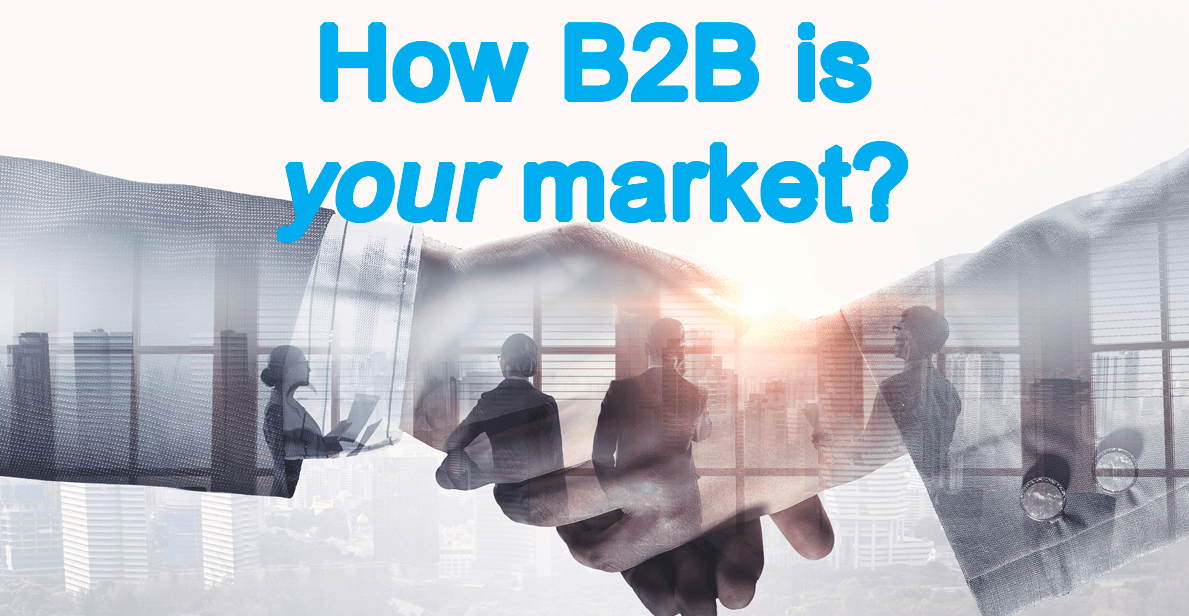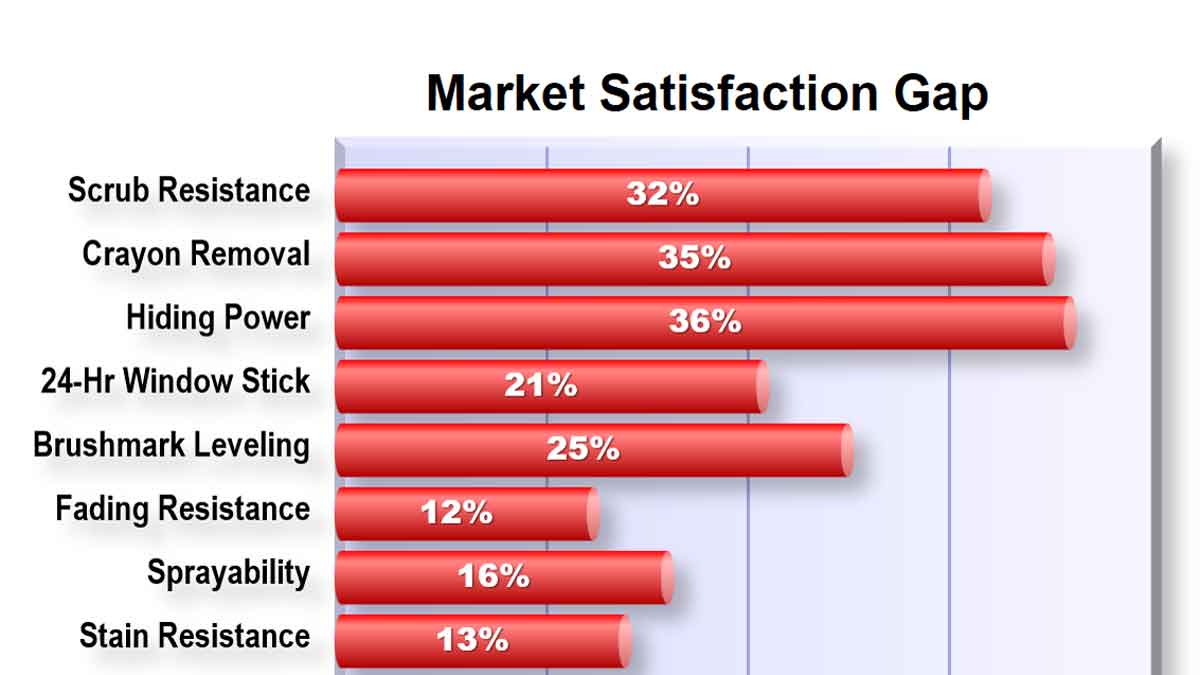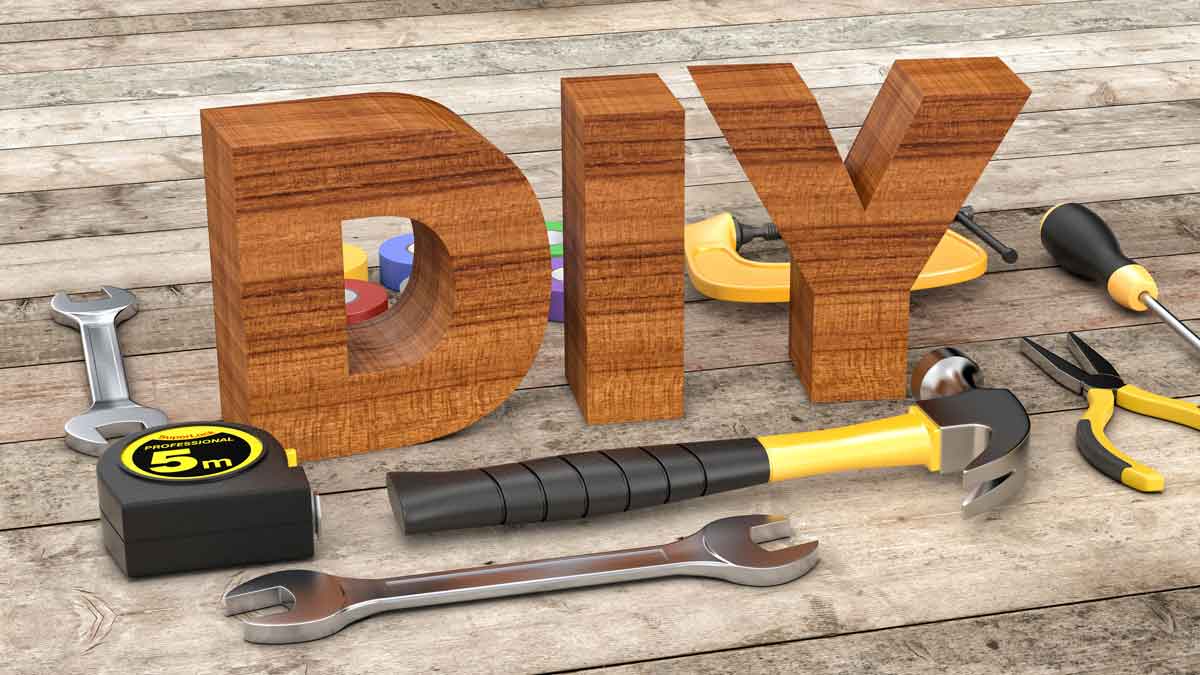The term “B2B” is useful, because business customers can be so different than end-consumers. But it’s a blunt and imprecise term, and we can do better. Check out the “B2B Index” developed by The AIM Institute. The higher your market’s B2B Index, the greater you can engage customers… in both early-stage and late stage marketing. (This is a free service.)
Calculate your B2B Index at www.b2bmarketview.com
B2C employees (e.g. Apple engineers) are consumers themselves, so they have high typical customer insight… but low potential insight, since consumers can’t easily predict what will entertain them. The gap between typical and potential insight when serving knowledgeable B2B customers is much larger. This is your competitive edge if you close the gap before competitors.
More in white paper, Catch the Innovation Wave (page 13).
That’s too bad. They could follow 12 rules to dramatically improve their launches. A new approach is needed for three reasons: 1) The digital age is changing everything. 2) B2B marketers have been following the rules of consumer goods marketers too long. 3) Much more rigor is needed than most B2B companies apply today.
More in e-book, 12 New Rules of B2B Product Launch
This can super-charge your organic growth: Don’t let your R&D conduct any product development work without unbiased, unfiltered data on what customers do and do not want. Market Satisfaction Gaps—based on importance and satisfaction scores for customer outcomes—provide this. You’ll free up enormous resources by working on only what matters.
More in white paper, Catch the Innovation Wave (page 13).
In either case you should ask, “What was I thinking of when I started this?” Especially if you are a B2B supplier with knowledgeable, interested, rational customers, who want you to know their needs. And a science already exists for completely understanding these needs. Maybe it’s time to stop throwing salt and begin learning a better approach?
Learn more in our e-book, Reinventing VOC for B2B
B2B producers often take a DIY approach, while B2C marketers hire research firms. Why? For one thing, consumer products often have bigger annual revenues: Think of all the small B2B parts in a big-ticket item like a smart phone. For B2C it’s all about that launch. But B2B companies often “turn the crank” on many smaller new products… so its economical to develop in-house expertise.
More in article, You Already Answered 4 Questions, but… Correctly?
It would seem obvious that new product development should be focused on those who will pay for these products: customers. It would seem. Yet B2B suppliers routinely pursue their own ideas, concepts and hypotheses, paying too little attention too late to market needs. True customer-centric innovation is a completely different mindset.
More in article, Is Your Innovation Supplier-Centric… or Customer-Centric?
Many ventures try to create new products or services under conditions of market uncertainty. This is a huge challenge for B2C. But uncertainty does not exist in the minds of most B2B customers… who have great knowledge, interest, objectivity and foresight. If you know how to access this, your supplier uncertainty will plummet.
More in white paper, Lean Startup for B2B (page 12).
Imagine you’re planning to build a new home: Your architect sees you for half an hour, spends the first 15 minutes talking about sports, and then shows you pictures of other houses he designed. Later, when the house fails to please you, he dismisses it saying, “Well that buyer just didn’t know what he wanted.” Ever treat customers this way?
More in article, What is New Product Blueprinting?
You want differentiated new products that will induce enthusiastic customers to open their wallets wider. Differentiated products must be… different. But different from what, in what ways, and to what extent? 100% of this information can be learned from B2B customers… but only if you engage them in specific discussions. Very few suppliers do this correctly.
More in article, Four Steps Needed for New Product Differentiation (Originally published in B2B Organic Growth newsletter).
Picture this: You develop a great new product, price it well, and profits begin flowing. This does not go unobserved by competitors who introduce a knock-off, causing prices to drop. Everyone noticed the initial success, but few noticed the failure: Aggressive patent homework might have kept those profits flowing for years. Depressing… if you noticed.
More in New Product Blueprinting article, Are You Maximizing Your Profits?
It’s much more likely you don’t know how to ask them. B2C customers can seldom describe what will entertain them or boost their self-esteem. But B2B customers are knowledgeable, interested, and objective. They may not know the solutions, but they do know their desired end-results. You’ll learn this when you learn how to ask.
More in e-book, Reinventing VOC for B2B (page 15).
One of our best innovations started as an experiment. In 2004 I projected my notes during a customer interview. The customer loved it, the meeting went far longer than expected, and we haven’t looked back since. Sure, customers can correct your notes this way, but our biggest discovery was that customers own what they create and can see.
Read more in the article, The Best Customer Interviews Use a Digital Projector (Originally published in B2B Organic Growth newsletter).
You can have an intelligent, peer-to-peer conversation about pressure ratings, fluid specifications, etc. You can expect greater B2B interest vs. B2C, since your innovations can help the hydraulics engineer become a hero with his next new product. Without innovative suppliers like you, his path to recognition is a difficult one.
Read this article, B2B Customer Interviews: Are They Different? to learn why you are severely under-optimizing if you are a B2B supplier using one-size-fits all VOC… that others use for consumer goods.













